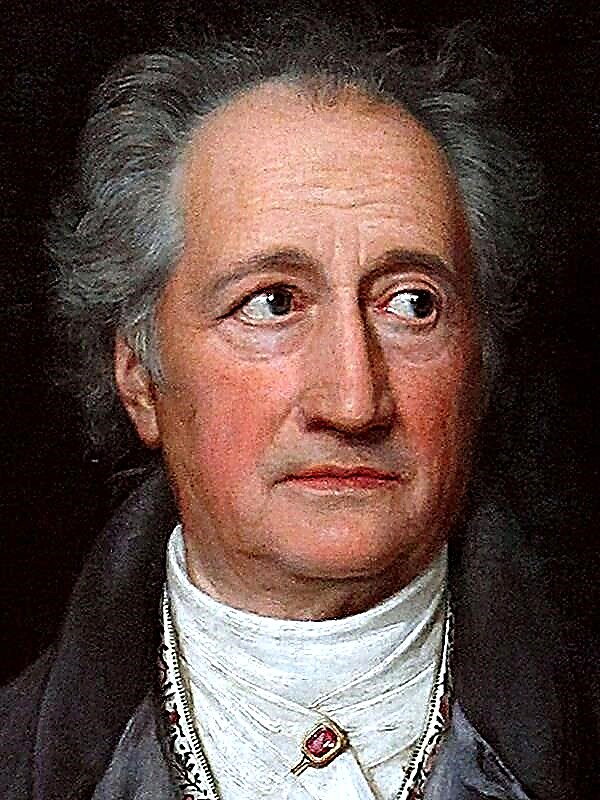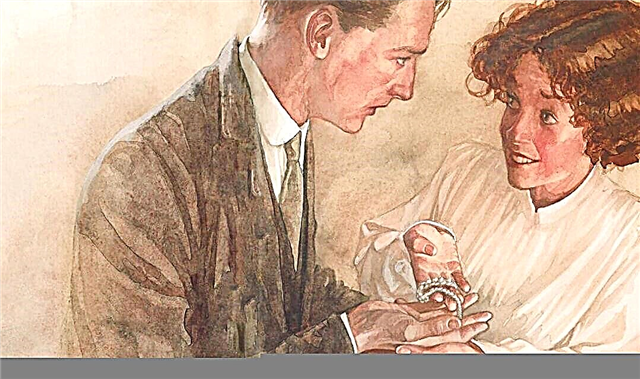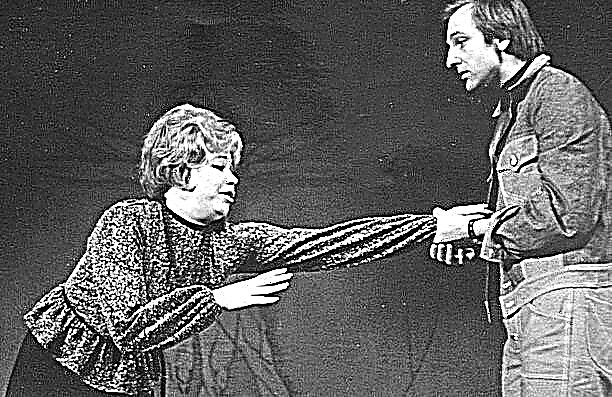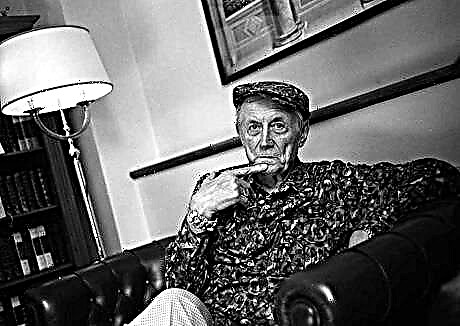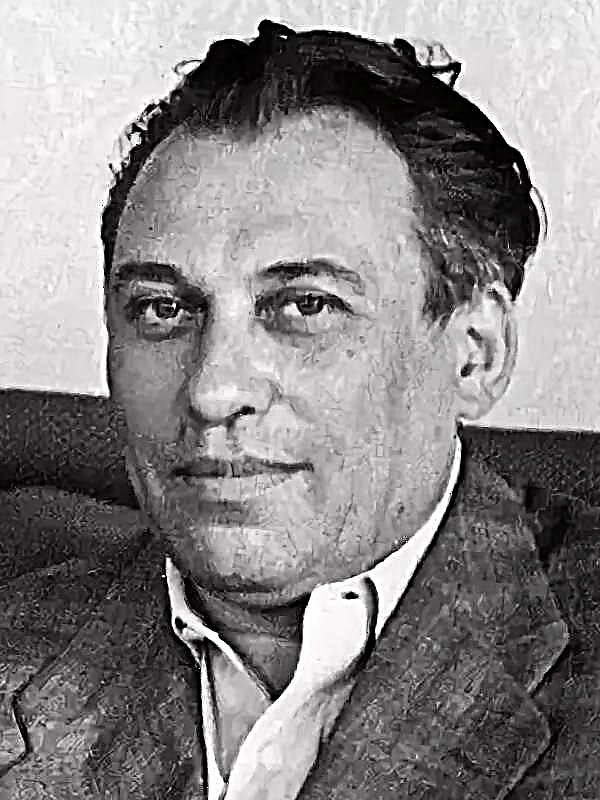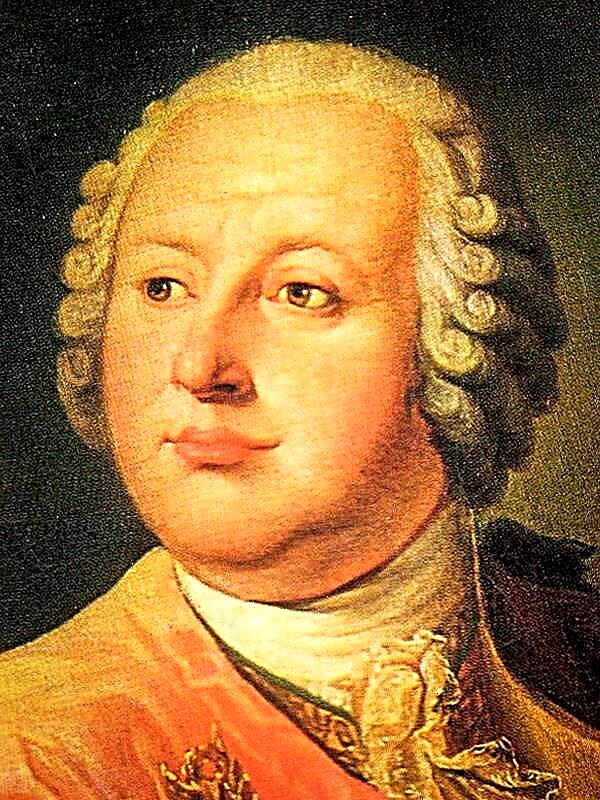In a town on the Black Sea, two friends are talking while swimming. Ivan Andreevich Laevsky, a young man of about twenty-eight, shares the secrets of his personal life with military doctor Samoilenko. Two years ago, he married a married woman, they fled from St. Petersburg to the Caucasus, telling themselves that they would begin a new working life there. But the town turned out to be boring, people uninteresting, Laevsky did not know how and did not want to work on the ground, and therefore from the first day he felt bankrupt. In his relations with Nadezhda Fedorovna, he no longer sees anything but a lie, now living with her is beyond his strength. He dreams of running back to the north. But it’s impossible to break up with her: she has no relatives, no money, she does not know how to work. There is one more difficulty: the news came of the death of her husband, which means for Laevsky and Nadezhda Fedorovna the opportunity to get married. Good Samoilenko is exactly what this friend advises to do.
Everything that Nadezhda Fedorovna says and does to Laevsky seems to be a lie or similar to a lie. At breakfast, he barely restrains his irritation, even the way she swallows milk causes a great hatred in him. The desire to quickly find out the relationship and run away now does not let him go. Laevsky is used to finding explanations and justifications for his life in someone else's theories, in literary types, comparing himself with Onegin and Pechorin, with Anna Karenina, with Hamlet. He is ready to blame himself for the lack of a guiding idea, to recognize himself as a loser and an extra person, then he will justify himself. But as he believed in salvation from the void of life in the Caucasus, he now believes that if he abandons Nadezhda Fedorovna and leaves for St. Petersburg, he will heal a culturally intelligent, vigorous life.
Samoilenko holds something like a table dot, he has a young zoologist von Koren and just graduated from Victory Seminary. At lunch, the conversation goes about Laevsky. Von Koren says Laevsky is just as dangerous to society as a cholera microbe. He corrupts the inhabitants of the town by openly living with someone else's wife, drinking and soldering others, playing cards, multiplying debts, doing nothing, and, moreover, justifies himself with fashionable theories about heredity, degeneration, and more. If people like him breed, humanity and civilization are in serious danger. Therefore, Laevsky for his own benefit should be neutralized. “In the name of the salvation of mankind, we ourselves must take care of the destruction of the frail and worthless,” the zoologist says coldly.
The mocking deacon laughs, stunned Samoilenko can only say: “If you drown people and hang them, then to hell with your civilization, to hell with humanity! To hell!"
On Sunday morning, Nadezhda Fedorovna goes swimming in the festive mood. She likes herself, I'm sure that all the men she meets admire her. She feels guilty before Laevsky. For these two years, she had made debts in the Achmianov’s shop for three hundred rubles and she was not going to say all about it. In addition, she had already twice received the police bailiff Kirilin. But Nadezhda Fedorovna joyfully thinks that her soul did not participate in her betrayal, she continues to love Laevsky, and everything is already torn with Kirilin. In a bathhouse, she talks with an elderly lady Marya Konstantinovna Bityugova and learns that in the evening the local community has a picnic on the banks of a mountain river. On the way to the picnic, von Koren tells the deacon about his plans to go on an expedition along the coast of the Pacific and Arctic Oceans; Laevsky, riding in another carriage, scolds the Caucasian landscapes. He constantly feels hostility to von Koren and regrets that he went on a picnic. At the mountain spirits of Tatar Karbalaya, the company stops.
Nadezhda Fedorovna is in a playful mood, she wants to laugh, tease, flirt. But the persecution of Kirilin and the advice of young Achmianov to beware of that overshadow her joy. Laevsky, tired of a picnic and undisguised hatred of von Koren, breaks his annoyance at Nadezhda Fedorovna and calls her a coquette. On the way back, von Koren admits to Samoilenko that his hand would not flinch, had he entrusted the state or society with destroying Laevsky.
At home, after a picnic, Laevsky informs Nadezhda Fedorovna about the death of her husband and, feeling at home as in prison, leaves for Samoilenko. He begs a friend to help, lend three hundred rubles, promises to arrange everything with Nadezhda Fedorovna, make peace with his mother. Samoilenko offers to make peace with von Koren too, but Laevsky says that this is impossible. Maybe he would have extended his hand, but von Koren would have turned away with contempt. After all, this nature is solid, tyrannical. And his ideals are despotic. People for him are puppies and insignificants, too small to be the goal of his life. He works, goes on an expedition, turns his neck there not in the name of love for his neighbor, but in the name of such abstracts as humanity, future generations, the ideal breed of people ... He would order to shoot anyone who goes beyond our narrow conservative circle morality, and all this in the name of improving the human species ... Despots have always been illusionists. With enthusiasm, Laevsky says that he clearly sees his shortcomings and is aware of them. This will help him to resurrect and become another person, and he is passionately waiting for this rebirth and renewal.
Three days after the picnic, an excited Marya Konstantinovna comes to Nadezhda Fedorovna and offers her to be her matchmaker. But the wedding with Laevsky, Nadezhda Fedorovna feels, is now impossible. She cannot tell Marya Konstantinovna everything: how confused her relationship with Kirilin, with young Achmianov. From all the experiences she begins a strong fever.
Laevsky feels guilty before Nadezhda Fedorovna. But thoughts of leaving this coming Saturday so possessed him that Samoilenko, who had come to see the patient, only asked if he could get the money. But there is no money yet. Samoilenko decides to ask a hundred rubles from von Koren. He, after a dispute, agrees to give money to Laevsky, but only on condition that he leaves not alone, but with Nadezhda Fedorovna.
The next day, on Thursday, visiting Marya Konstantinovna, Samoilenko tells Laevsky about the condition set by von Koren. Guests, including von Koren, play in the mail. Laevsky, mechanically participating in the game, thinks about how much he has to and still have to lie, what a mountain of lies prevents him from starting a new life. To skip it at once, and not lie in parts, you need to decide on some cool measure, but he feels that this is impossible for him. An echidna note, apparently sent by von Koren, makes him hysterical. Having regained consciousness, in the evening, as usual, he leaves to play cards.
On the way from the guests to the house, Nadezhda Fedorovna is pursued by Kirilin. He threatens her with a scandal if she does not give him a date today. Nadezhda Fyodorovna is disgusted, she begs to let her go, but in the end gives in. Young Achmianov watches over them, unnoticed.
The next day, Laevsky goes to Samoilenko to take money from him, since it’s shameful and impossible to stay in the city after hysteria. It only catches von Koren. A short conversation follows; Laevsky understands that he knows about his plans. He acutely feels that the zoologist hates him, despises and scoffs at him, and that he is his worst and most implacable enemy. When Samoilenko arrives, Laevsky accuses him of a nervous attack that he does not know how to keep other people's secrets, and insults von Koren. Von Koren seemed to be waiting for this attack, he challenges Laevsky to a duel. Samoilenko unsuccessfully tries to reconcile them.
On the evening before the duel, Laevsky was at first possessed by hatred of von Koren, then, after wine and cards, he became careless, then anxiety seized him. When the young Achmianov leads him to some house and there he sees Kirilin, and next to him Nadezhda Fedorovna, all his feelings seem to disappear from his soul.
Von Koren this evening on the embankment talks with the deacon about a different understanding of the teachings of Christ. What should be love for one's neighbor? In eliminating everything that in one way or another harms people and threatens them with danger in the present or in the future, the zoologist believes. The danger to humanity is threatened by the morally and physically abnormal, and they should be neutralized, that is, destroyed. But where are the criteria for distinguishing, because mistakes are possible? The deacon asks. There is nothing to be afraid of getting your feet wet when the flood threatens, says the zoologist.
On the night before the duel, Laevsky listens to the thunderstorm outside the window, looks at his past, sees only a lie in it, feels his guilt in the fall of Nadezhda Fedorovna and is ready to beg her for forgiveness. If the past could be restored, he would have found God and justice, but it is just as impossible as a rolled star to be returned to heaven again. Before going to a duel, he goes into the bedroom to Nadezhda Fedorovna. She looks with horror at Laevsky, but he, embracing her, understands that this unfortunate, vicious woman for him is the only close, dear and irreplaceable person. Sitting in a stroller, he wants to return home alive.
The deacon, leaving early in the morning to see the match, wonders why Laevsky and von Koren can hate each other and fight in a duel. Wouldn't it be better for them to go down and direct hatred and anger to where whole streets buzz with rude ignorance, greed, reproaches, impurity ... Sitting in a strip of corn, he sees how opponents and seconds have arrived. Because of the mountains, two green rays stretch out, the sun rises. Nobody knows the rules of a duel for sure, recall the descriptions of fights at Lermontov, at Turgenev ... Laevsky shoots first; fearing that no matter how the bullet hits von Koren, he fires a shot in the air. Von Koren points the barrel of the gun directly at Laevsky’s face. "He will kill him!" - the desperate cry of the deacon makes him miss.
Three months pass. On the day of his departure for the expedition, von Koren, accompanied by Samoilenko and the deacon, goes to the marina. Passing by Laevsky’s house, they talk about the change that happened to him. He married Nadezhda Fedorovna, working from morning till night to pay off his debts ... Having decided to enter the house, von Koren reaches out to Laevsky. He did not change his beliefs, but admits that he was mistaken about his former adversary. No one knows the real truth, he says. Yes, no one knows the truth, Laevsky agrees.
He watches as the boat with von Koren overcomes the waves, and thinks: so in life ... In search of truth, people take two steps forward, a step back ... And who knows? Perhaps they will come to the real truth ...


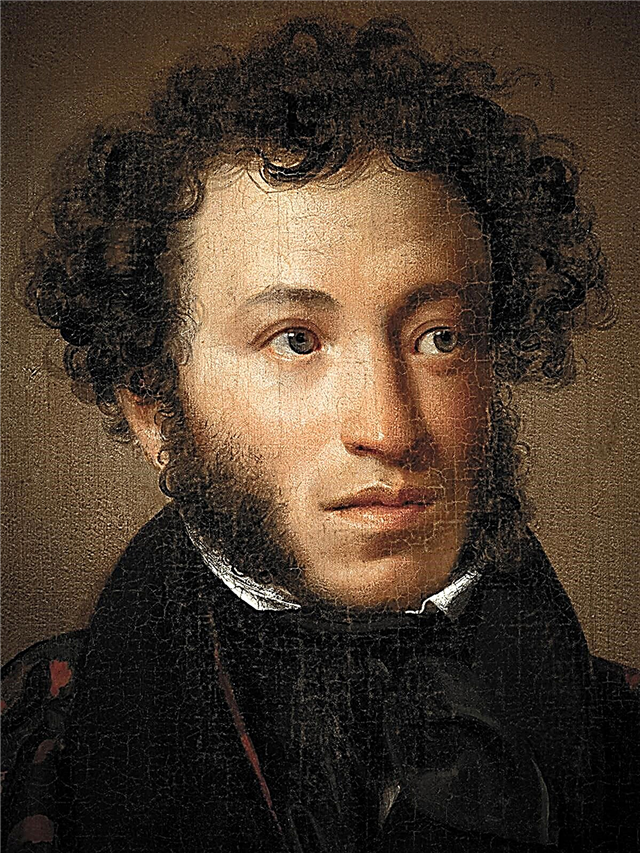
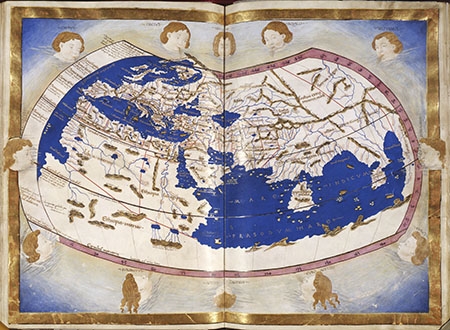
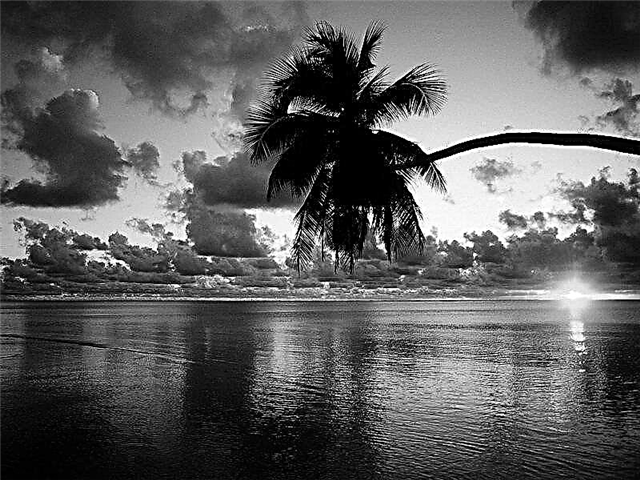
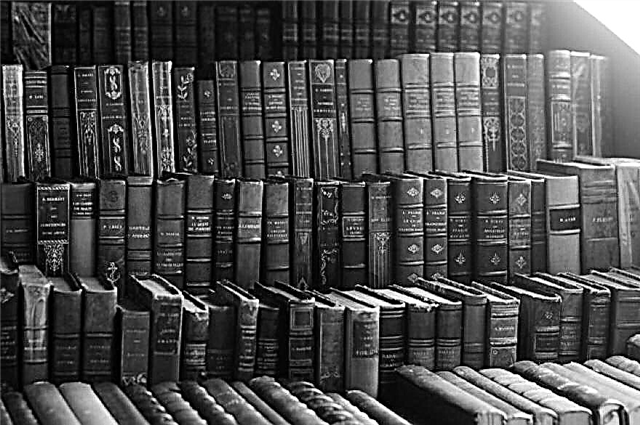
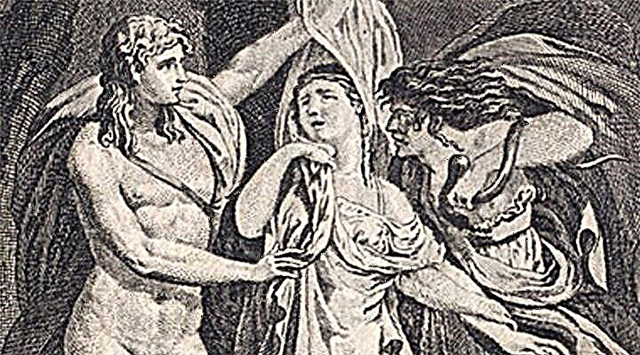 Justine
Justine